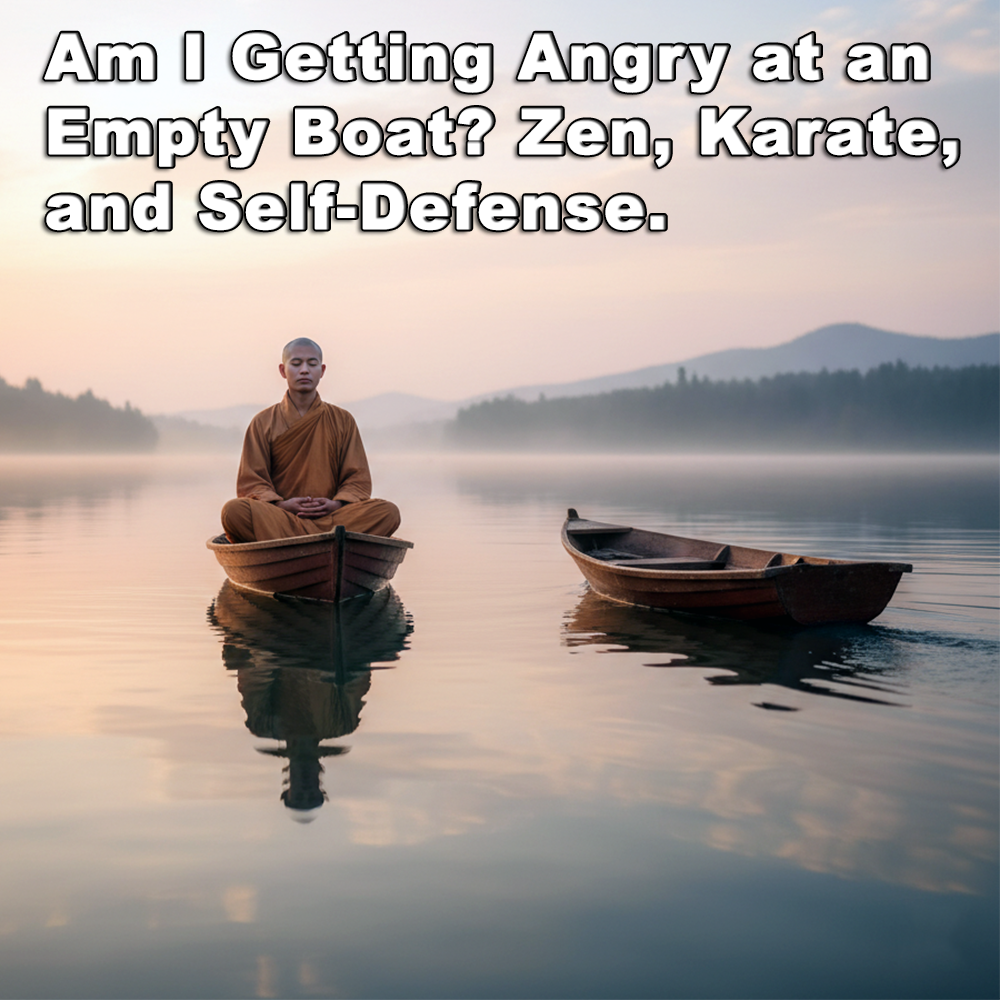
(Approx 2 minute 45 second read)
Many martial artists think self-defense begins with a punch, and for many practitioners, it’s the only way they see it.
.
Maybe because I’m getting on in years now, I think more of my failings and my fallibility. Back in the day I loved to fight, boxing as a youth, sport, competition, I couldn’t get enough of it.
.
Now, I seek a quieter path, avoidance at all costs. If only I could stay calm behind the wheel these days. But there really are so many stupid people around; did they even pass the driving test, I often wonder?
.
I used to be really calm behind the wheel. In my profession, working with the Police and as an EMT, being calm was part of the job. I used to race cars too, and there, calmness was a requisite.
.
Every time I climb into the car, it takes about a minute of driving before some clown tries to write off my car. Maybe I cherish it too much. It’s just a thing, after all.
.
It made me think of an old Zen story that I re-read recently.
.
Am I getting angry at an empty boat?
.
A monk was once sitting in a boat, quietly meditating. The water was calm, his mind peaceful, his eyes closed. Suddenly, another boat drifted into his, jostling him, rocking his boat. Instantly, with his eyes still closed, anger rose within him.
.
Then he opened his eyes, where he saw clearly that the boat was empty. It had no intentions, no malice. The anger he felt was entirely his own. The boat could not make him angry, only he could.
.
I think that this story is a simple but powerful reminder. Much of our suffering, our anxieties, come not from the world but from how we react to it. A careless word, a frustrating moment, a minor inconvenience, like the empty boat, none of these can harm us unless we give them power.
.
For martial artists, the lesson runs deeper. Many people train, or think they train, only to fight. They react first, strike first, even letting anger dictate action.
.
They are, in essence, getting angry at empty boats, responding to perceived threats that may not even exist, letting emotion lead where skill should. True self-defense begins in the mind, not the fist.
.
Zen teaches it begins with awareness, before taking up your fighting stance with your hands held in a high guard. Awareness, patience, and understanding create safety far beyond what brute force can achieve.
.
For those who fight first, without practicing other essential skills such as de-escalation, escape, situational awareness, or avoidance, the lesson is clear: the mind is the most important part of your training. True martial skill is not measured by how fast or hard you strike, but by how well you control your reactions and choose when, or if, to engage.
.
It made me think also that if you’re only learning to fight, then you’re only learning half the art. If your practice never goes beyond fighting, then you miss the very thing that makes karate an art, the ability to see clearly, to stay composed, and to act only when there is no other choice.
.
Of course, someone will ask: why practice karate then, if the aim is not to fight? The answer is simple. Karate prepares you for when you have no choice. If avoidance, de-escalation, or escape fail, then yes, you must fight. But if that moment comes, you will fight with clarity, not anger. You will respond with skill, not panic. The practice of karate is not just about striking, it’s about preparing the body and mind for the rare times when fighting is unavoidable.
.
Pause. Observe. Let it pass. The world moves as it moves. Being at peace, being quiet, is a skill too….. or maybe I am just getting old.
.
.
Written by Adam Carter – Shuri Dojo
